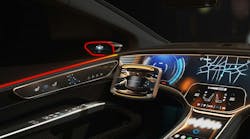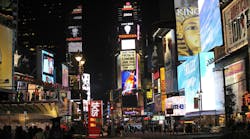The licenses provide rights to manufacture and sell white LEDs that incorporate Cree's high performance LED chips. The company is currently in discussions with other potential partners to license this patent with a goal of announcing further licensing arrangements over the next several quarters.
The 6,600,175 patent was originally filed by Advanced Technology Materials Inc. (ATMI) and was acquired by Cree when it took over ATMI’s gallium nitride business in March 2004. The patent was filed in March 1996 and granted in July 2003.
The patent covers any solid-state device coupled with a down-converting luminophoric medium, and specifically refers to the production of white light by coupling a monochromatic blue or UV LED with a fluorescent organic and/or inorganic material in a polymeric matrix.
The patent was licensed to Nichia Corporation in the cross-licensing agreement between Nichia and Cree announced earlier this year.
“These additional licenses further reinforce the importance of this patent and the increasing awareness and respect for intellectual property in the industry,” said Scott Schwab, Cree's vice- president and general manager of optoelectronics.
“These licenses are a result of our ongoing IP awareness activities, and can enable increased sales of our high performance chips for white LED applications,” continued Schwab. “We continue to seek ways to make Cree products, and our partners who use them, more competitive while defending our technology and IP in the market.”
Nichia “believes further IP actions are needed”
Earlier this week, Nichia that it will accelerate its patent enforcement against blue/white LEDs which infringe its intellectual property rights.
Nichia had taken series of legal actions against certain LED manufacturers in order to protect its intellectual property rights, yet it “believes its rights are not necessarily respected by certain companies in the industry”.
“Intellectual property has been an important issue for Nichia, and its importance will not be diminishing in the future.” said Noboru Tazaki, Executive Vice President of Nichia Corporation. “We are serious in protecting our rights, as well as business of our customers and our licensing partners.”
Some distributors are now marketing products with labels indicating they contain Nichia LEDs, and the company says that it is not currently enforcing its LED patents against those labeled products.
Nichia is currently considering additional legal actions in several countries, and will commence if the infringement is found and the damage is “not tolerable”.




